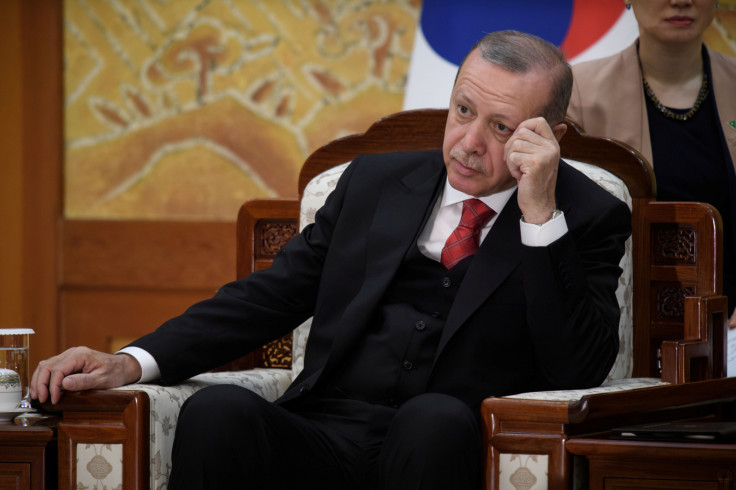Turkey plan 'new economic model' amid currency crash and crisis over US pastor
A weak currency, high borrowing, and conflict with the Trump administration point to long-term economic problems for Turkey.
ANKARA, Turkey — Turkey's government says it will outline a "new economic model" on Friday as the national currency hit another record low amid concerns about the president's policies and an ongoing dispute with the U.S.
The lira, which has fallen about 30 percent since the start of the year, dropped to another low of 5.47 against the dollar on Thursday.
The slide followed news that high level meetings in Washington between U.S. and Turkish officials over a detained American pastor concluded without an apparent resolution. The pastor's detention led to Washington imposing punitive sanctions on two Turkish Cabinet ministers and warning of possible additional measures.
That added to existing concerns about the independence of the central bank. President Recep Tayyip Erdogan wants the bank to keep rates low to support economic growth, but independent economists say it should be free to raise rates to rein in inflation.
Turkey finances a lot of its economic growth with foreign investment, making it particularly vulnerable to a slide in the currency. A weaker currency weakens returns for those foreign investors, who could pull their money out — reinforcing the currency drop and potentially leading to financial instability.
In such a case, Turkey could either seek financial assistance from the International Monetary Fund or decide to put limits on money outflows from the country. Because IMF help comes with policies prescriptions, analysts say that Erdogan could be more inclined to try to control money flows.
Finance and Treasury Minister Berat Albayrak, who is Erdogan's son-in-law, will present the outlines of a new economic model on Friday, his ministry said Thursday.
The ministry said it expects inflation, currently nearly 16 percent, to return to single digits and that the current account deficit would be lowered from the current 5.5 percent of GDP to 4 percent. It did not explain how it would achieve that.

Wednesday's talks between Turkish and U.S. officials addressed the case of Pastor Andrew Brunson as well as the sanctions, aiming to end the sharp rift between the NATO allies.
Brunson is on trial on espionage and terror-related charges related to a failed 2016 coup attempt, which he and the U.S. government adamantly deny. Washington has repeatedly demanded Brunson's release.
Erdogan has previously linked Brunson's return to the U.S. to the extradition of the cleric Turkey's government holds responsible for the failed 2016 coup. The cleric denies orchestrating the coup attempt.
© Copyright IBTimes 2025. All rights reserved.





















